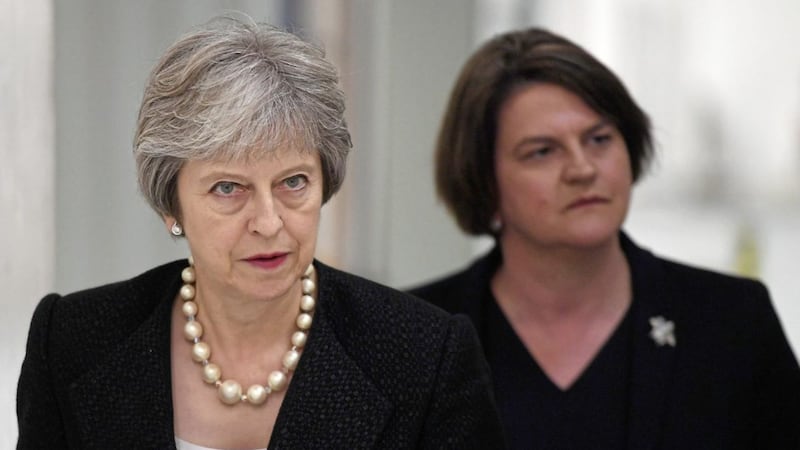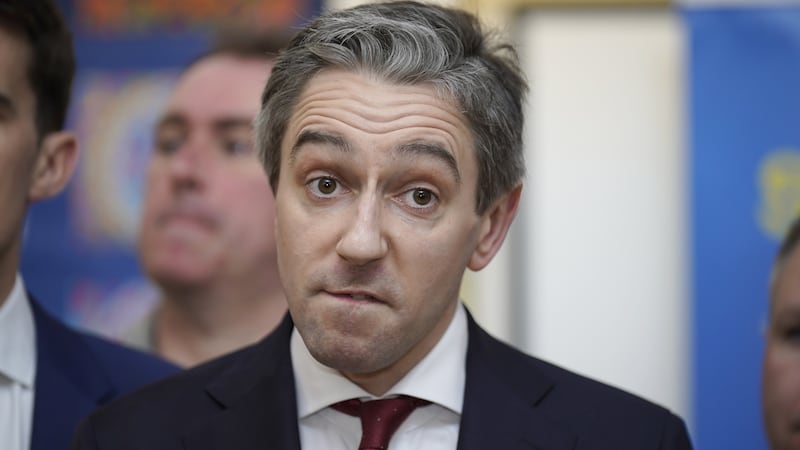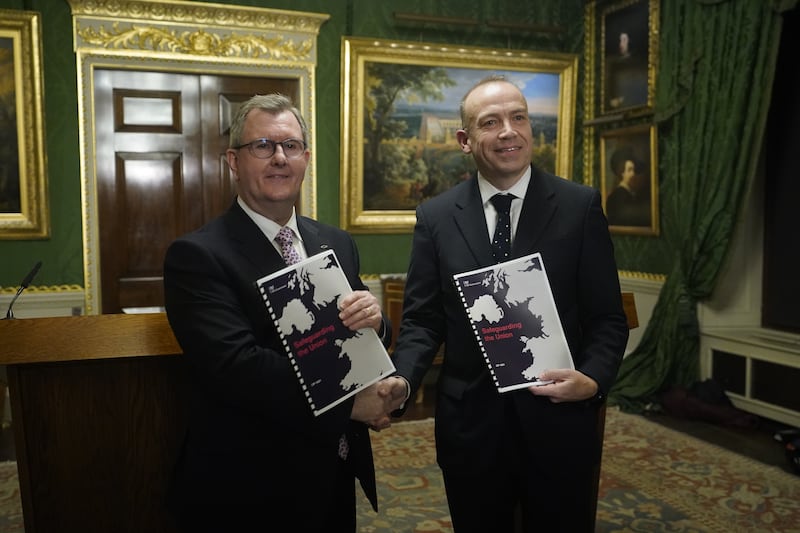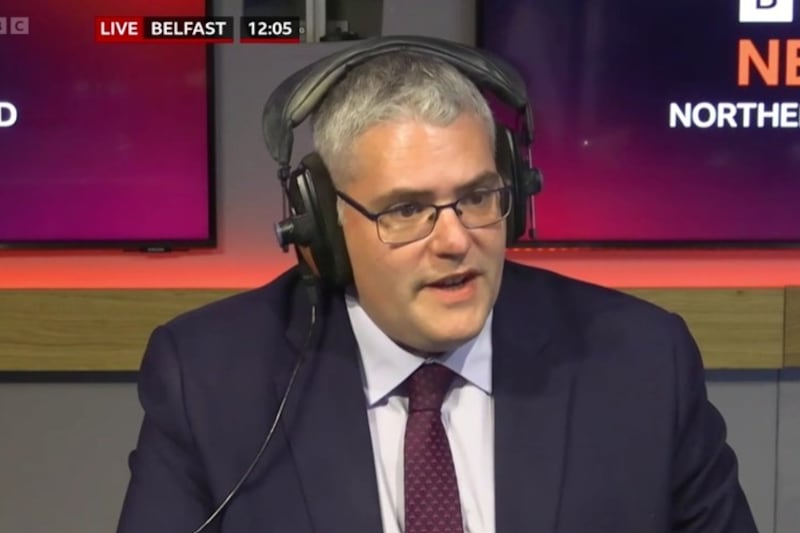It's long been speculated that Theresa May would cut adrift the DUP when ultimately faced with the choice between securing a pragmatic Brexit withdrawal deal and driving off a cliff. Many observers believe we have now reached that point but it's important to distinguish between objective analysis and wishful thinking.
The British prime minister does appear increasingly likely to accept a deal that for the time being will keep the UK in a form of customs union and therefore avoid the need to implement the EU's backstop – though that doesn't negate the need for a backstop, or a backstop to the backstop.
In the letter leaked to The Times, Mrs May insists she is opposed to anything which "would break up the UK customs territory".
However, the British prime minister also acknowledges how Northern Ireland's "unique circumstances" could require "specific alignment solutions in some scenarios".
While stressing that the scope of such alignment would be limited, and arguably amount to little more than the checks on agricultural goods that are already in place, it's he possibility of a 'border in the Irish Sea' that has spooked the DUP.
Arlene Foster and her party colleagues fear that despite assurances to the contrary, measures which potentially set Northern Ireland apart will be enshrined in the divorce deal. She said last night that her party's MPs would not support such a deal.
Their suspicions of a threat to the 'precious union' will likely prompt closer alignment between the DUP and those Tories who are equally averse to a watered down Brexit but it's doubtful whether it will signal an immediate heave against Mrs May, who only becomes dispensible after a deal, or no deal, is finalised.
But with so many variables and points of divergence in the process, it's impossible to predict what the final outcome will be. Mrs May must first ensure that the EU is is broadly amenable to her proposals before selling it to her cabinet, which is far from four square behind the Tory leader. The key hurdle will be Westminster, where if the DUP disgruntled and ready to abandon the confidence and supply deal, she'll be relying on a thus far non-committal opposition.
Throughout this process the DUP has been driven by its blinkered ideology rather than acting in the interests of Northern Ireland as a whole, which it often likes to claim. Its doggedness has won the party friends among Jacob Rees-Mogg's European Research Group but unlike the key protagonists in this process, there is a failure to appreciate that flexibility and compromise are necessary if catastrophe is to be avoided. Mrs May is clearly reluctant to cut adrift the DUP but the party seems increasingly intent on forcing her hand.








